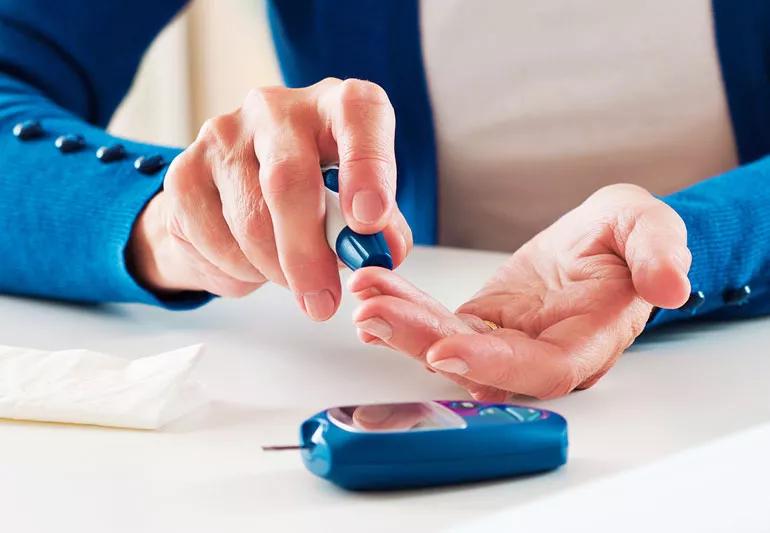How to handle nightly hormone surge with diabetes

Image content: This image is available to view online.
View image online (https://assets.clevelandclinic.org/transform/71feed54-184d-45cf-8136-a3810bb408e7/diabetesCheckGlucose-471877019-770x533-1_jpg)
elderly woman checking her glucose reading
As morning approaches, your body prepares to rise and it releases a surge of hormones. Those hormones can work against insulin to cause your blood sugar to rise slightly. When this happens, it is known as ‘dawn phenomenon.’
Advertisement
Cleveland Clinic is a non-profit academic medical center. Advertising on our site helps support our mission. We do not endorse non-Cleveland Clinic products or services. Policy
In most people, dawn phenomenon is typically harmless because your body creates a small amount of insulin to correct the problem. However, for those with diabetes, it can become a bigger challenge, says endocrinologist Sana Hasan, DO.
If you have diabetes, here’s what you need to know about regulating your blood sugar at night so you don’t have to worry about managing it first thing in the morning.
For people with diabetes, dawn phenomenon is problematic because your body isn’t able to naturally correct for insulin changes during the night. This often creates consistently high blood glucose levels in the morning. Estimates show that dawn phenomenon occurs in about 50% of people who have type 2 diabetes.
If you find that your blood sugar is consistently high when you wake up, you can help diagnose the issue by checking your blood sugar levels during the night.
Dr. Hasan suggests that you set your alarm for 2 or 3 a.m. for a few nights in a row to see what the levels are like during that time. “If they’re high then, that’s probably a sign of dawn phenomenon,” she says.
But if you find low blood sugar levels during the night, that’s another issue altogether. If this is the case, you likely have what is known as the Somogyi effect, or rebound hyperglycemia.
Advertisement
This happens when blood sugar drops during the night and your body releases hormones (including cortisol) to counteract this drop, causing a higher-than-normal blood sugar spike.
There is a short list of things you can do on your own to help reduce morning blood sugar highs. The list includes:
If these don’t work, your physician may recommend:
If you find that your blood sugar is consistently high in the morning or you see signs that it might be — sweating, intense hunger, lightheadedness, shaking or anxiety, or dramatic mood swings — it is important to talk to your doctor.
Managing glucose spikes is vital because even a small increase in blood sugar can greatly increase the risk of diabetes-related complications including heart disease, stroke and neuropathy (nerve damage).
Advertisement

Sign up for our Health Essentials emails for expert guidance on nutrition, fitness, sleep, skin care and more.
Learn more about our editorial process.
Advertisement
There are better breakfast options, but if it’s got to be cereal, look for whole grains, high fiber and no added sugar
A diabetes diagnosis, new or long-standing, can trigger reactions like grief, stress, depression and frustration, but symptom relief and help are available
Type 1 diabetes happens when your body doesn’t make insulin, while Type 2 happens when your body can’t use insulin properly
There is an indirect link between the sweet substance and the condition
The short answer: Yes, but you need to eat it in moderation and keep track of how much you consume
Blood glucose monitoring and drinking in moderation can help you avoid hypoglycemia
Sweet potatoes are great, but sweetened drinks aren’t so great
Some sweeteners may have health risks, so it’s best to keep your intake moderate
Type 2 diabetes isn’t inevitable with these dietary changes
Applying a hot or cold compress can help with pain
Pump up your iron intake with foods like tuna, tofu and turkey